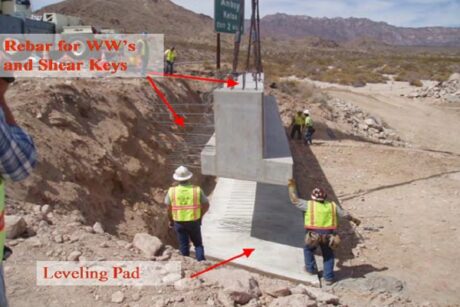Subtotal: $25.00
- Course No E – 1934
- PDH Units: 2
- Course No E – 1934
- PDH Units: 2
Intended Audience: for All Engineers
PDH UNITS: 2
This course first presents a summary of the Code of Ethics for Engineers focusing on safety-related provisions, followed by a discussion of how ethical issues are present in every stage of design and construction and how such ethical issues, especially related to safety, need to be addressed to prevent catastrophe. The tragic disintegration of Shuttle Columbia during the re-entry to the earth’s atmosphere and the cause of the disintegration will be discussed next. The Columbia disaster will be used to show how not “holding safety paramount” by the engineers and their managers during the design phase as well as during the operational phase of the Columbia resulted in the tragic failure and loss of lives of seven astronauts. It will be shown that if the first canon of the Code of Ethics for Engineers to “hold safety paramount” was followed, this man-made catastrophe could have been prevented. References and Recommended Further Readings:
- Code of Ethics of National Society of Professional Engineers (NSPE) (PDF)
- NSPE Ethics Reference Guide (PDF)
- Ethics, Technology, and Engineering, a book by Ibo van de Poel and Lambèr Royakkers, Wily-Blackwell, 2011. (Amazon page)
- Concepts and Cases-Engineering Ethics, a book by Charles E. Harris et al., published by Cengage2019. (Amazon page)
- ASME “Code of Ethics of Engineers” (PDF),
- Post, S.C., (2014) “Space Shuttle Case Studies: Challenger and Columbia”, 121st ASEE Annual Conference &Exposition, Indianapolis, IN. (PDF)
- Columbia Accident Investigation Board (CAIB) Report. (2003) Government Printing Office. (PDF)
- NASA 03-259, (2003). Asteroids Dedicated To Space Shuttle Columbia Crew. (html)
- Post Heppenheimer , T.A. (2002) Space Shuttle Decision, 1965-1972 (History of the Space Shuttle, Volume 1) Smithsonian Institution Scholarly Press.(htm)
- Augustine Report - Report of the Advisory Committee On the Future of the U.S. Space Program. December 1990. Report html
Learning Objectives:
At the successful conclusion of this webinar, you will learn the following knowledge and skills:- Why “holding safety, health and well-being” of the public is so critical in preventing disasters.
- How not holding “safety paramount” was the leading cause of the tragic disintegration of the Shuttle Columbia during the re-entry.
- How “group-think” can blind engineers to “hold safety paramount.”
- How “willful or intentional blindness” of engineers and their managers can create safety-related disasters
- How by following the first canon of the Code of Ethics for Engineers, “holding safety paramount”, during the design and operational phase of the shuttle Columbia, engineers and their managers could prevent the tragic failure and loss of lives of seven astronauts.
Once completed, your order and certificate of completion will be available in your profile when you’re logged in to the site.


 E - 1505 Crawl Space Construction in Special Flood Areas
E - 1505 Crawl Space Construction in Special Flood Areas 







